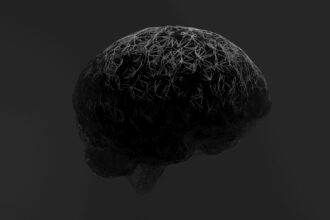Belief systems are the frameworks through which you interpret the world around you. They encompass your values, principles, and convictions, shaping your understanding of reality and guiding your actions. These systems can be deeply personal, influenced by your upbringing, experiences, and the information you consume.
They serve as a lens through which you view life, affecting everything from your relationships to your career choices. Understanding belief systems is crucial because they not only define who you are but also influence how you interact with others and navigate the complexities of life. As you delve into the intricacies of belief systems, you may find that they are not static; rather, they evolve over time.
Your beliefs can be challenged and reshaped by new experiences, education, and exposure to different perspectives. This dynamic nature of belief systems highlights their importance in personal growth and societal change. By examining your own beliefs and those of others, you can gain insights into the motivations behind actions and decisions, fostering empathy and understanding in an increasingly diverse world.
Key Takeaways
- Belief systems are formed through a combination of cultural, environmental, and psychological influences.
- Perception plays a crucial role in shaping beliefs, as individuals interpret and filter information based on their own experiences and biases.
- Cultural and environmental factors significantly impact belief systems, shaping values, norms, and worldviews.
- Psychological mechanisms, such as cognitive biases, contribute to the formation and reinforcement of belief systems.
- Belief systems have a profound impact on behavior, decision making, health, well-being, and societal and political dynamics.
The Role of Perception in Shaping Beliefs
Perception plays a pivotal role in shaping your beliefs. It is through your senses that you gather information about the world, and this information is filtered through your existing beliefs and experiences. For instance, if you have a belief that people are generally trustworthy, you are likely to perceive others’ actions in a more favorable light.
Conversely, if you believe that people are inherently selfish, you may interpret the same actions as self-serving. This interplay between perception and belief creates a feedback loop that reinforces your existing worldview. Moreover, your perception is influenced by cognitive biases—systematic patterns of deviation from norm or rationality in judgment.
These biases can distort your understanding of reality, leading you to form beliefs based on incomplete or skewed information. For example, confirmation bias may cause you to seek out information that supports your existing beliefs while ignoring evidence that contradicts them. Recognizing the role of perception in shaping beliefs is essential for fostering critical thinking and open-mindedness, allowing you to challenge your assumptions and expand your understanding of the world.
The Influence of Culture and Environment on Belief Systems

Your cultural background and environment significantly influence your belief systems. From an early age, you are exposed to the values and norms of your family, community, and society at large. These influences shape your understanding of right and wrong, success and failure, and what it means to lead a fulfilling life.
For instance, in collectivist cultures, you may prioritize community and family over individual achievement, while in individualistic cultures, personal success may take precedence. This cultural context provides a framework within which you develop your beliefs. Additionally, the environment in which you live can reinforce or challenge your beliefs.
Social interactions, educational opportunities, and exposure to diverse perspectives all play a role in shaping your worldview. If you live in a homogeneous community with limited exposure to differing viewpoints, your beliefs may become more entrenched. Conversely, engaging with people from various backgrounds can broaden your perspective and encourage you to reevaluate your beliefs.
Understanding the cultural and environmental influences on your belief systems can empower you to navigate differences with greater empathy and awareness.
The Psychological Mechanisms Behind Belief Formation
| Psychological Mechanism | Description |
|---|---|
| Confirmation Bias | Tendency to search for, interpret, favor, and recall information that confirms one’s preexisting beliefs. |
| Cognitive Dissonance | The discomfort experienced when simultaneously holding two or more conflicting cognitions, leading to a change in beliefs or attitudes. |
| Social Influence | The impact that the words, actions, or mere presence of others have on our thoughts, feelings, attitudes, or behavior. |
| Emotional Reasoning | Using emotions as the primary guide for evaluating the validity of a belief. |
The formation of beliefs is rooted in complex psychological mechanisms that govern how you process information and make sense of the world. Cognitive dissonance theory suggests that when you encounter information that contradicts your existing beliefs, it creates psychological discomfort. To alleviate this discomfort, you may either change your beliefs or rationalize the conflicting information to maintain consistency.
This process highlights the human tendency to seek coherence in thought and action. Another important mechanism is social learning theory, which posits that you learn beliefs through observation and imitation of others. From childhood onward, you absorb beliefs from parents, peers, and media figures, often without conscious awareness.
This socialization process can lead to the internalization of beliefs that align with those around you, reinforcing group identity but potentially stifling individual critical thinking. By recognizing these psychological mechanisms at play in belief formation, you can become more aware of how external influences shape your convictions.
The Impact of Belief Systems on Behavior and Decision Making
Your belief systems have a profound impact on your behavior and decision-making processes. They serve as guiding principles that inform your choices in various aspects of life, from personal relationships to professional endeavors. For example, if you believe in the importance of honesty, you are likely to prioritize transparency in your interactions with others.
Conversely, if you hold a belief that success is paramount at any cost, you may be more inclined to engage in unethical behavior to achieve your goals. Moreover, belief systems can create self-fulfilling prophecies—situations where your expectations influence outcomes. If you believe that you are capable of achieving success, you are more likely to take risks and pursue opportunities that align with that belief.
On the other hand, if you harbor doubts about your abilities, you may shy away from challenges that could lead to growth. Understanding the impact of your belief systems on behavior empowers you to make conscious choices that align with your values and aspirations.
The Neurological Basis of Belief Systems

The formation and maintenance of belief systems are not only psychological but also neurological processes. Research in neuroscience has shown that specific brain regions are involved in belief formation and reinforcement.
When confronted with information that challenges your beliefs, these brain regions work together to process the emotional discomfort and cognitive dissonance that arise. Furthermore, neuroplasticity—the brain’s ability to reorganize itself by forming new neural connections—allows for the potential modification of beliefs over time. As you encounter new experiences or information that contradicts existing beliefs, your brain can adapt by creating new pathways that support revised understandings.
This neurological basis for belief systems underscores the importance of lifelong learning and openness to change as essential components of personal development.
Cognitive Biases and their Effects on Belief Systems
Cognitive biases significantly affect how you form and maintain beliefs. These biases can lead to distorted thinking patterns that reinforce existing convictions while hindering objective analysis of new information. For instance, availability heuristic bias may cause you to overestimate the likelihood of events based on recent experiences or vivid examples rather than statistical reality.
This can lead to skewed beliefs about safety or risk based on isolated incidents rather than comprehensive data. Another common bias is the bandwagon effect, where individuals adopt beliefs simply because they are popular or widely accepted within their social circles. This phenomenon can create echo chambers where dissenting opinions are marginalized or ignored, further entrenching existing beliefs.
By becoming aware of these cognitive biases, you can cultivate a more critical approach to evaluating information and be more open to diverse perspectives that challenge your preconceived notions.
The Power of Belief Systems in Health and Well-being
Belief systems play a crucial role in shaping your health and well-being. Your beliefs about health—such as whether lifestyle changes can improve well-being or whether mental health issues are stigmatized—can influence how you approach self-care and treatment options. For instance, if you believe in the efficacy of positive thinking or mindfulness practices, you may be more likely to engage in activities that promote mental health resilience.
Moreover, research has shown that belief systems can impact physical health outcomes as well. The placebo effect illustrates how belief in a treatment’s efficacy can lead to real physiological changes in the body. Conversely, negative beliefs about health can contribute to stress and anxiety, which may exacerbate physical ailments.
By harnessing the power of positive belief systems related to health and well-being, you can cultivate a mindset that supports holistic wellness.
Challenging and Changing Belief Systems
Challenging and changing deeply held beliefs can be a daunting yet transformative process. It often requires introspection and a willingness to confront uncomfortable truths about yourself and the world around you. Engaging with diverse perspectives through dialogue or education can provide opportunities for growth by exposing you to alternative viewpoints that challenge your assumptions.
Additionally, practicing critical thinking skills is essential for evaluating the validity of your beliefs. By questioning the sources of information that shape your convictions and considering evidence from multiple angles, you can develop a more nuanced understanding of complex issues. Embracing change as a natural part of personal development allows for greater adaptability in an ever-evolving world.
The Role of Belief Systems in Society and Politics
Belief systems extend beyond individual experiences; they play a significant role in shaping societal norms and political landscapes. Collective beliefs within communities can influence policies, social movements, and cultural practices. For instance, shared beliefs about justice or equality can drive activism for social change while also creating divisions among groups with differing ideologies.
In politics, belief systems often dictate party affiliations and voting behaviors. Political ideologies are rooted in fundamental beliefs about governance, economics, and social issues. Understanding how these belief systems operate within society enables you to engage more thoughtfully in political discourse and advocate for policies aligned with your values while respecting differing opinions.
Harnessing the Power of Perception for Positive Change
In conclusion, belief systems are powerful constructs that shape every aspect of your life—from personal relationships to societal interactions. By understanding the intricate interplay between perception, culture, psychology, and neuroscience in shaping these systems, you can cultivate greater awareness of how they influence your thoughts and actions. Challenging entrenched beliefs while remaining open to new perspectives fosters personal growth and contributes positively to society.
Harnessing the power of perception allows for transformative change—not only within yourself but also within communities at large. As you navigate the complexities of belief systems, remember that embracing diversity of thought enriches understanding and promotes empathy among individuals with differing viewpoints. Ultimately, by fostering an environment where open dialogue thrives, you contribute to a more inclusive society where positive change is possible for all.
Belief systems are a fascinating area of study within psychology, as they shape how individuals perceive and interact with the world around them. These systems are deeply rooted in cultural, social, and personal experiences, influencing everything from daily decision-making to broader worldviews. An insightful article that delves into the intricacies of belief systems can be found on Unplugged Psych. This piece explores the psychological underpinnings of belief formation and the factors that contribute to their persistence or change over time. For a deeper understanding, you can read more about it on their website.
WATCH THIS! The Shocking Truth About Perception Loops
FAQs
What is a belief system?
A belief system is a set of principles or values that an individual or group holds to be true. It often includes religious, philosophical, or moral beliefs that guide a person’s behavior and decision-making.
What is the science of belief systems?
The science of belief systems, also known as belief system theory, is the study of how and why people form and maintain their beliefs. It explores the psychological, sociological, and cognitive processes that influence belief formation and the impact of belief systems on behavior and society.
What factors influence belief systems?
Belief systems are influenced by a variety of factors, including upbringing, culture, education, personal experiences, and social influences. Cognitive biases and heuristics also play a role in shaping belief systems.
How do belief systems affect behavior?
Belief systems can have a significant impact on an individual’s behavior, influencing their decisions, actions, and interactions with others. Beliefs can shape attitudes, values, and motivations, ultimately guiding behavior in various contexts.
Can belief systems change over time?
Belief systems are not static and can change over time in response to new information, experiences, and social influences. This process of belief change is influenced by cognitive processes, emotional factors, and social dynamics.
What are the implications of understanding belief systems?
Understanding belief systems has implications for fields such as psychology, sociology, anthropology, and political science. It can inform efforts to promote understanding and tolerance among diverse belief systems and contribute to the development of effective communication and conflict resolution strategies.




